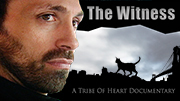

Both a philosophy and a way of life, veganism has its roots in the principles of nonviolence, sustainability and nonparticipation in exploitation of others. Practitioners of veganism resolve not to use and consume animal products for food, clothing, or any other purpose. To practice veganism is to become a conscientious objector to the violence and injustice done to billions of animals every day all over the world; to make a real contribution to decreasing the harm to human health caused by consumption of animal products as well as the pollution caused by animal agriculture itself; to take a stand against the degradation done to our ecosystem by an exploitative industry that consumes vast amounts of water, land and other resources while contributing to deforestation, habitat destruction and a loss of biodiversity.
The term vegetarianism pertains more narrowly to dietary habits, and refers to the practice of eating a diet that includes vegetables, fruits, nuts, seeds and grains and is free from all animal products including dairy and eggs. This form of diet can also be described as a "plant-based" diet. Vegetarian is often mistakenly used as an adjective to describe those who do not eat flesh but do consume other animal products such as diary and eggs. Such a diet would be more accurately described by the term ovo-lacto vegetarian.
Copyright © 2016 Tribe of Heart Ltd.